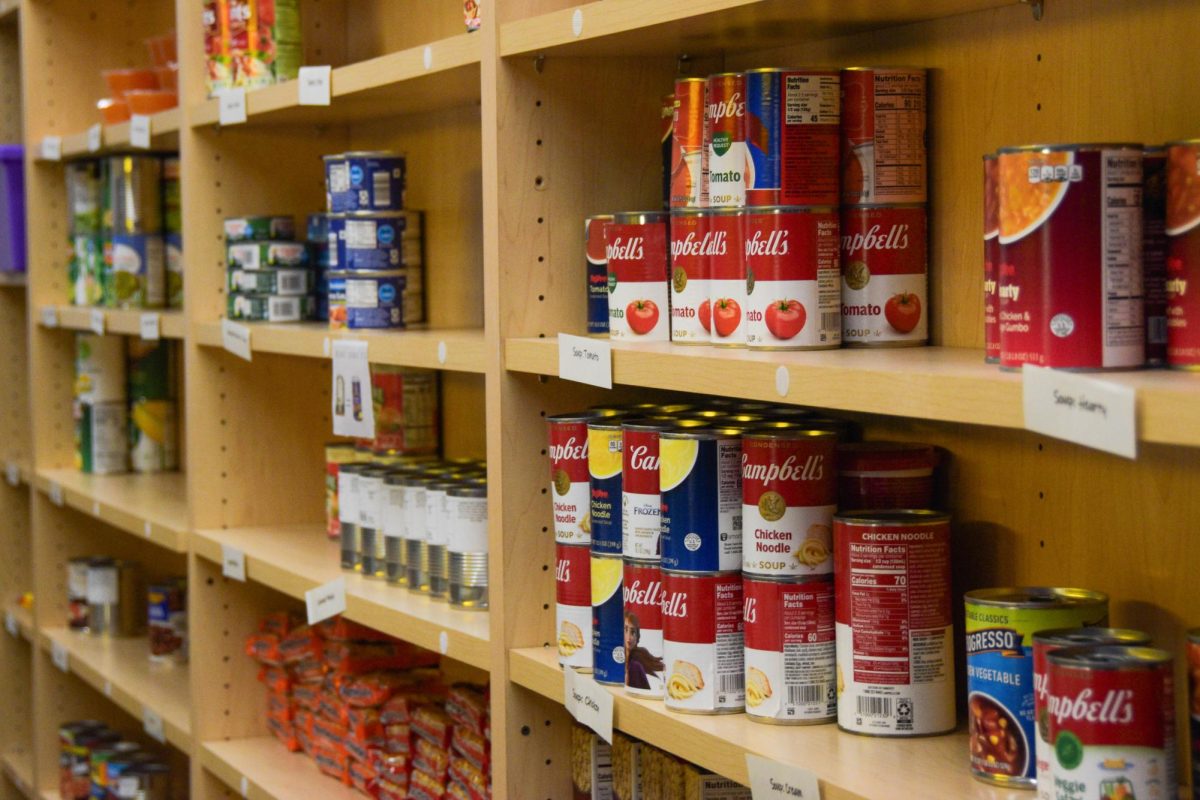Kaysey Price/Winonan
The end of October is often linked with Halloween—it is a season to spook and be spooked. But what may be even scarier than children in Scream masks or the thought of Jason from Friday the 13th visiting your dreams is the start of flu season.
Jennifer Holden, a dietitian at the Winona HyVee, has defined super foods and provided diet tips for staying healthy, to keep students in class and finishing out the fall semester strong.
Holden defined what super foods are for those who are unsure of what the group encompasses.
“Basically, a super food is a food that is nutrient dense, which means you get a lot of nutrients for a few calories. A lot of the super foods are fruits and vegetables,” Holden said. “Typically it’s antioxidants and more of the unusual nutrients that can help to promote health but are not necessarily a daily nutrient that you need to survive.”
College students in particular may be lacking in the super foods department, Holden said.
“It’s going to vary quite a bit with college students, some are reaching for that frozen pizza or whatever is easy and inexpensive, and others are becoming more health conscious. I would say the foods that are typically lacking [in a college student’s diet] are the super foods, so your fruits and vegetables,” she added.
College students may be skimping on the fruits and vegetables due to their expensive price and the lack of storage space, but Holden suggests there are ways around this.
“If you have freezer space, frozen fruits and vegetables are just as good as fresh, and they are going to be less expensive. They are picked during the season and flash frozen, so they maintain pretty good flavor and decent texture,” Holden said. “What I love about them is they are already clean and ready to go, so you just throw them in whatever dish you’re using.”
Holden suggested adding frozen berries to oatmeal; something healthy and easy to make on-the-go.
If freezer space is a no-go, the next best option is canned foods. The only problem with canned foods is fruits have to be canned in syrup, which adds a lot of sugar. Canned vegetables, on the other hand, tend to add salt.
“Salt can be added to dishes for flavor, but it shouldn’t be ‘the’ flavor,” Holden joked.
Holden recommends getting canned fruits in their own juice or in light syrup to avoid excess added sugar.
If you can buy fresh, look for foods with a darker color.
“With those fruits and vegetables, shoot for a dark color. They’re called flavonoids. More color means more antioxidants.”
Getting daily vitamins is also an essential part of staying healthy this flu season.
Many people think that pushing vitamin C is the best way to ward off illness, but that may not be the case.
“Vitamin C has a larger role in healing than preventing illness, but it is a daily nutrient that people tend to overdose on—which isn’t harmful, but isn’t helping either,” Holden said. “A variety of fruits and vegetables contain vitamin C, so if you’re getting a variety you’re probably getting enough vitamin C.”
While vitamin C may take the center stage in people’s minds when it comes to flu-fighting nutrients, zinc should not be forgotten.
“Another key nutrient is zinc, which helps to prevent illness. Zinc rich foods are the beans and nuts and proteins,” Holden said.
While it’s necessary to add super foods to your diet in order to maintain your health during flu season, eating certain foods in moderation may also promote health. Holden suggests limiting high-sodium foods to maintain hydration levels in the body. She also recommends watching the amount of saturated fat and trans fats one consume, which is often found in processed foods.
In order to get the right amount of each food group, Holden recommends the new MyPlate.
“Make sure that you’ve got your half a plate of fruits and vegetables. Get a source of protein in about the size of your palm, and then have some type of whole grain there.”
Being gluten-free may be the fad diet these days, but Holden stressed the importance of carbs.
“You keep hearing ‘carbs, I don’t know about those,’ but those whole grains have important nutrients too that are going to help fight the flu,” Holden said.
As far as what to do if you get sick, there is always chicken noodle soup. It is known as the food to eat when you are sick, and studies are still looking into whether or not the soup actually helps to cure the flu.
“There has been evidence that it does make a difference,” Holden said. “But they’re not sure exactly what it is, whether it’s the steam, which I personally think helps when you’re stuffed up. Another theory is that the spices help. And then there’s the idea that it just brings comfort to us.”
































































